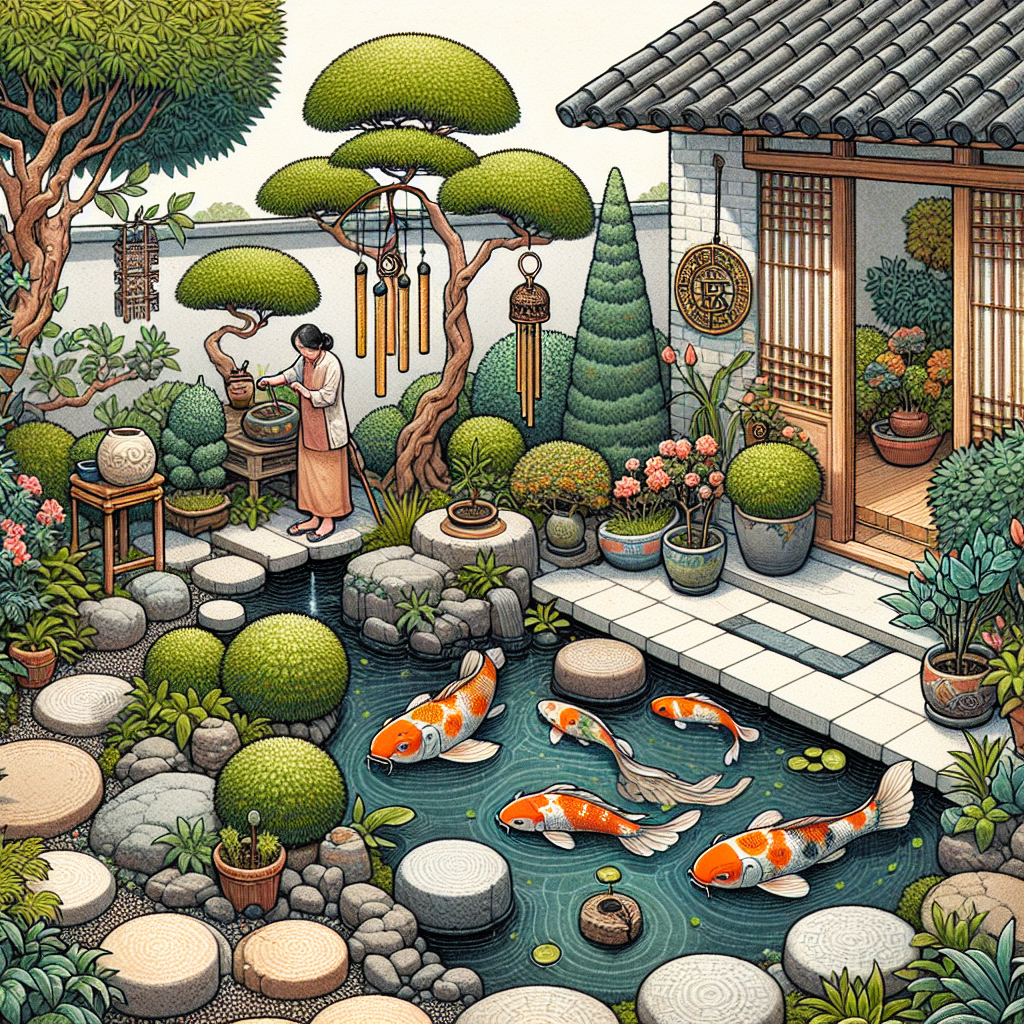Creating a tranquil and harmonious outdoor environment is a desire for many homeowners. One effective way to achieve this is through the ancient art of Feng Shui. This Chinese philosophy not only focuses on the arrangement of furniture indoors but also extends beautifully into the outdoor realm. In this article, we will explore how to incorporate Feng Shui principles into your garden to enhance its energy, beauty, and your overall well-being.
Understanding Feng Shui: The Basics
Feng Shui, which translates to “wind and water,” is based on the idea that our surroundings affect our energy, known as "Chi." The arrangement of elements in our environment can influence our health, happiness, and prosperity. When applied to gardens, Feng Shui encourages a harmonious flow of energy through careful placement of plants, pathways, water features, and other design elements.
Assessing Your Garden’s Energy Flow
Before diving into changes, it’s essential to assess your garden’s current energy flow. Walk through your outdoor space and take note of any areas that feel stagnant or chaotic. Is there an abundance of clutter? Are there overly sharp angles or uncomfortable spaces? Pay attention to these details, as they can impact the overall feeling of your garden.
Key Principles of Feng Shui in the Garden
1. Balance and Symmetry
A visually balanced garden creates a sense of peace and tranquility. Try to maintain symmetry in your plant arrangements. You don’t have to achieve perfect symmetry, but mirroring shapes and colors can evoke a sense of stability. For instance, if you have a prominent bush on one side, consider planting a similar one on the opposite side.
2. The Importance of Water Features
Water represents wealth and prosperity in Feng Shui. Incorporating a water feature—be it a pond, fountain, or birdbath—can enhance the positive energy in your garden. Flowing water symbolizes the continuous flow of good fortune. Just ensure that the water is clean and flowing smoothly, as stagnant water can bring unwanted energy.
3. Plant Selection and Placement
Selecting the right plants is crucial in Feng Shui. Aim to include a variety of adaptable plants that can thrive in your specific climate. In Feng Shui, lush, green plants represent vitality, while flowers symbolize joy and happiness. Avoid thorny or spiky plants, which can create negative energy. Instead, consider using soft, rounded shapes to promote a nurturing ambiance.
4. Pathways: Clear and Inviting
Pathways should encourage exploration and discovery. Avoid sharp, angular paths that create a rushed feeling. Instead, opt for meandering paths made of natural materials like stone, gravel, or mulch. This not only ensures a welcoming journey through your garden but also promotes a harmonious flow of energy.
5. Incorporate Natural Elements
Bringing in natural elements like rocks, wood, and soil can create a grounded atmosphere. These materials can be used in borders, as decorative pieces, or as functional attributes like seating or tables. The presence of natural elements fosters a connection with the Earth, enhancing your garden’s harmony.
Creating Zones for Different Activities
To maximize the potential of your garden, consider creating specific zones for relaxation, social interaction, and gardening activities. By clearly defining these areas, you can cultivate a space that caters to your lifestyle. For instance:
- Relaxation Zone: Incorporate comfortable seating, lush greenery, and calming flower displays to create a peaceful retreat.
- Social Zone: Designate an area for gatherings with friends and family, perhaps with a fire pit or a dining table adorned with vibrant plant life.
- Gardening Zone: Allocate space for growing herbs or vegetables, ensuring it feels inviting and energetically balanced.
The Role of Color in Your Garden
Color profoundly impacts energy in Feng Shui. Choose colors that resonate with the emotions or vibes you want to evoke. For instance:
- Green: Represents growth, harmony, and fertility.
- Blue: Symbolizes tranquility and calm.
- Yellow: Conveys happiness and energy.
Incorporate these colors through flower selection, plant pots, and garden decor to elevate the garden’s ambiance.
Regular Maintenance: Keeping Energy Flowing
Finally, maintaining your garden is just as crucial as its initial design. Regularly pruning plants, cleaning water features, and removing clutter helps ensure that the energy remains vibrant and flowing. A well-maintained garden reflects care and promotes positive Chi, enhancing your overall living environment.
Conclusion: Your Feng Shui Garden Awaits
Feng Shui in the garden is about much more than aesthetics—it’s about creating a space that nourishes your body and soul. By applying these principles, you can harmonize your outdoor space, fostering a nurturing environment for relaxation, laughter, and growth. Remember, your garden is a reflection of you, so take the time to cultivate a space that you love and that resonates with your personal energy. Step outside, breathe deeply, and let the serenity of your Feng Shui garden wash over you.


